|
Books Should Be Free Loyal Books Free Public Domain Audiobooks & eBook Downloads |
|
|
Books Should Be Free Loyal Books Free Public Domain Audiobooks & eBook Downloads |
|
Books on Advice |
|---|
Book type:
Sort by:
View by:
|
By: George MacDonald (1824-1905) | |
|---|---|
 The Wise Woman
The Wise Woman
George MacDonald was an influential Scottish author, poet, and Christian minister. MacDonald’s works (particularly his fairy tales and fantasy novels) claimed the admiration of such authors as J. R. R. Tolkien, C. S. Lewis, and Madeleine L’Engle. The Wise Woman fairy tale was one of MacDonald’s more popular works. This delightful story describes how a woman of mysterious powers pays visits to two very different young girls: one a princess, the other a shepherd’s daughter. Neither girl is left unchanged by the startling events that are unleashed as a result: and the reader is confronted by astonishing fairy-worlds in which the girls are forced to choose between good and evil... | |
By: Arnold Bennett (1867-1931) | |
|---|---|
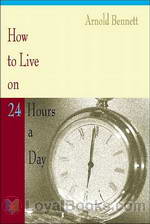 How to Live on Twenty-Four Hours a Day
How to Live on Twenty-Four Hours a Day
This book is a classic piece on self improvement teaching you to live to the fullest. Judging from the title of the book, the reader might expect that the book is a manual on how to manage your time better. Nothing could be further from the truth, this book is a flowery and witty self help book aimed at helping readers improve the quality of their lives, in fact it is one of the firsts of its kind in the world. Bennett describes the twenty four hours in a day as a miracle and that it should be used for the betterment of health, wealth, respect, pleasure and contentment... | |
By: Publius Cornelius Tacitus | |
|---|---|
 A Dialogue Concerning Oratory, or the Causes of Corrupt Eloquence
A Dialogue Concerning Oratory, or the Causes of Corrupt Eloquence
The scene of the Dialogus de Oratoribus, as this work is commonly known, is laid in the sixth year of Vespasian, 75 a.D. The commentators are much divided in their opinions about the real author; his work they all agree is a masterpiece in the kind; written with taste and judgement; entertaining, profound, and elegant. It is normally considered to have been written by Tacitus, even though some ascribe it to Quintilian. The main subject is the decadence of oratory, for which the cause is said to be the decline of the education, both in the family and in the school, of the future orator. In a certain way, it can be considered a miniature art of rhetoric. | |
By: Mabel Hale | |
|---|---|
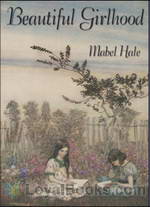 Beautiful Girlhood
Beautiful Girlhood
The transitioning years between girlhood and womanhood are an exciting time for a girl, as well as tumultuous and confusing. Beautiful Girlhood by Mabel Hale is a lovely guide that will help the young girl understand the changes she is going through emotionally and physically and also guide her in the proper behavior befitting a young woman. | |
By: Myrtle Reed (1874-1911) | |
|---|---|
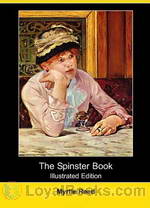 The Spinster Book
The Spinster Book
A cross between guidebook and social commentary, The Spinster Book gives clever and humorous insights on topics such as courting, handling men and women, love letters, marriage and spinsterhood. | |
By: Irvin S. Cobb (1876-1944) | |
|---|---|
 One Third Off
One Third Off
Irvin Shrewsbury Cobb (June 23, 1876–March 11, 1944) was an American author, humorist, and columnist who lived in New York and wrote over 60 books and 300 short stories. Cobb has been described as “having a round shape, bushy eyebrows, full lips, and a triple chin. He always had a cigar in his mouth.” This book is a hilarious account of Cobb’s attempts at weight-loss. | |
By: Elizabeth E. Lea (1793-1858) | |
|---|---|
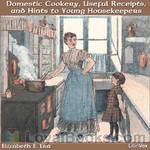 Domestic Cookery, Useful Receipts, and Hints to Young Housekeepers
Domestic Cookery, Useful Receipts, and Hints to Young Housekeepers
The compiler of [this book] having entered early in life upon a train of duties, was frequently embarrassed by her ignorance of domestic affairs. For, whilst receipt books for elegant preparations were often seen, those connected with the ordinary, but far more useful part of household duties, were not easily procured; thus situated, she applied to persons of experience, and embodied the information collected in a book, to which, since years have matured her judgment, she has added much that is the result of her own experiments... | |
By: Constance Johnson | |
|---|---|
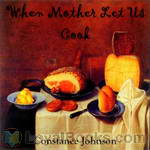 When Mother Lets Us Cook
When Mother Lets Us Cook
A book of simple receipts for little folk with important cooking rules in rhyme together with handy lists of the materials and utensils needed for the preparation of each dish. | |
By: Rufus Estes (b. 1857) | |
|---|---|
 Good Things to Eat as Suggested by Rufus
Good Things to Eat as Suggested by Rufus
Rufus Estes was born a slave in 1857 in Tennessee, and experienced first hand the turmoil of the Civil War. He began working in a Nashville restaurant at the age of 16, and in 1883 took up employment as a Pullman cook. In 1897, he was hired as principal chef for the private railway car of U.S. Steel magnates (the fin-de-siecle equivalent of today’s Lear Jets for corporate travel). There he served succulent fare for the rich and famous at the turn of the 20th century. | |
By: Peter Abelard (1079-1142) | |
|---|---|
 The Story of My Misfortunes
The Story of My Misfortunes
Autobiographies from remote historical periods can be especially fascinating. Modes of self-presentation vary greatly across the centuries, as of course does the very concept of Self. Peter Abelard, the medieval philosopher and composer, here gives a concise but vivid survey of his notoriously calamitous life. The work is couched in the form of a letter to an afflicted friend. Abelard’s abrasively competitive, often arrogant personality emerges at once in the brief Foreword, where he informs his correspondent: “(I)n comparing your sorrows with mine, you may discover that yours are in truth nought.. and so shall you come to bear them the more easily.” | |
By: Wallace D. Wattles (1860-1911) | |
|---|---|
 The Science of Being Well
The Science of Being Well
If you are seeking better health and ways to stay well…This book is for you! Wallace D. Wattles was an American author and a pioneer success new thought movement writer. His most famous work and first book is a book called The Science of Getting Rich in which he explains how to get rich. Additionally, In the Science of Getting Well, Wattles suggests the reader to think and ACT in a Certain Way. As with his first book, Wattles explains in simple concepts the keys to Getting Well. With faith and discipline, Wattles suggests you can stay well... | |
By: Lucius Annaeus Seneca | |
|---|---|
 Of Peace of Mind
Of Peace of Mind
How to maintain a tranquil mind amongst social upheaval and turmoil, addressed to Serenus. (Introduction by Jonathan Hockey) | |
By: Paul Allardyce (1855-1895) | |
|---|---|
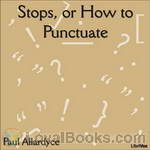 Stops, or How To Punctuate
Stops, or How To Punctuate
Throughout the ages, languages continue to adapt and change. English, being a relatively new language, is a nice example of that. Though the English vocabulary is continually evolving, the system of punctuation has remained constant for the most part. This means that grammar books from 1895 are still applicable today. Therefore, if the following sentence looks correct to you, perhaps listening to Paul Allardyce’s “Stops, or How to Punctuate” would be a good idea. | |
By: Sarah Cory Rippey | |
|---|---|
 The Goody-Naughty Book
The Goody-Naughty Book
The Goody-Naughty Book was originally published as two books back to back. Opening the book from one end, the reader experiences “The Goody Side” where the children are polite and thoughtful. However, turning the book over and beginning from the other side, one reads “The Naughty Side” where the children are lazy and irritable. These short, moral stories teach children the proper way to behave and that there are consequences if they don’t. | |
By: Theodore Arnold Haultain (1857-1941) | |
|---|---|
 Hints for Lovers
Hints for Lovers
“Hints for Lovers” is a thorough analysis of relationships between men and women, about everything that lovers should know, and delves deep into the psychology of men and women, and the philosophy of courtship, engagement, kissing, making love, marriage, etc, in a light-hearted tone, with refreshing humor. | |
By: Maria Montessori (1870-1952) | |
|---|---|
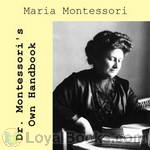 Dr. Montessori's Own Handbook
Dr. Montessori's Own Handbook
This is the authoritative book written by Montessori to describe her methods. It gives an overview of the Montessori Method as developed for 3 to 6 year olds. It is a short work, intended as a manual for teachers and parents, detailing the materials used as well as her philosophy in developing them. "As a result of the widespread interest that has been taken in my method of child education, certain books have been issued, which may appear to the general reader to be authoritative expositions of the Montessori system... | |
By: Arthur William Knapp (1880-1939) | |
|---|---|
 Cocoa and Chocolate: Their History from Plantation to Consumer
Cocoa and Chocolate: Their History from Plantation to Consumer
As that heavenly bit of chocolate melts in our mouths, we give little thought as to where it came from, the arduous work that went in to its creation, and the complex process of its maturation from a bean to the delicacy we all enjoy. This “little book” details everything you have ever wanted to know (and some things you never knew you wanted to know) about cocoa and chocolate from how the trees are planted and sustained to which countries produce the most cacao beans. Do cacao beans from various... | |
By: Steve Solomon | |
|---|---|
 Gardening Without Irrigation: or without much, anyway
Gardening Without Irrigation: or without much, anyway
Gardening expert Steve Solomon has written extensively on gardening techniques for the home gardener. Water conservation is the focus of this work, along with more information on how to have the healthiest plants in your garden through “fertigation”, appropriate plant rotation, and soil preparation. | |
By: Chesterton, G. K. | |
|---|---|
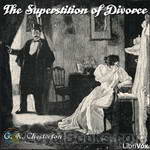 The Superstition of Divorce
The Superstition of Divorce
This short book was written in 1920, and in it Chesterton, with his usual wit and incisive logic, presents a series of articles defending marriage and indicating the weaknesses in divorce. He did this 16 year before the first Christian denomination in the world allowed it’s members to divorce. Till then Christendom was unanimous in standing against it. Chesterton saw clearly the trends of this time, and delivered this defense. | |
By: P. R. Kincaid | |
|---|---|
 The Arabian Art of Taming and Training Wild and Vicious Horses
The Arabian Art of Taming and Training Wild and Vicious Horses
Back in the day before automobiles, a good horse trainer and veterinarian was the equivalent of “Mr Goodwrench”. A badly behaving or unhealthy equine was equivalent to breaking down on the highway or running out of gas on a lonely stretch of highway somewhere in Utah. My sources tell me that most of the training methods are ok, but stay away from the medical tips unless you are prepared to become the poster boy or girl for the local SPCA. Listen with tongue in cheek, and check with a professional before attempting any of these techniques on a real animal. | |
By: Dorothy Quigley | |
|---|---|
 What Dress Makes of Us
What Dress Makes of Us
A wickedly funny book of advice on women’s dress. However old, fat or plain you are, Dorothy Quigley will tell you what not to wear. | |
By: Thornton Chase | |
|---|---|
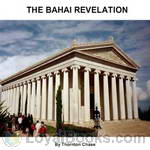 The Bahai Revelation
The Bahai Revelation
Thornton Chase (1847 – 1912) is commonly recognized as the first convert to the Bahá’í Faith of Occidental background. During his life he organized many Bahá’í activities in Chicago and Los Angeles and was considered a prominent Bahá’í. In 1894, Chase met Ibrahim Kheiralla, a Bahá’í from Beirut who had recently come to the United States. Chase and a small group of Chicagoans began to study the Bahá’í Faith with him. By 1895 he had completed the class and become a Bahá’í... | |
By: Havelock Ellis (1859-1939) | |
|---|---|
 Studies in the Psychology of Sex, Volume One
Studies in the Psychology of Sex, Volume One
The first of six volumes, this volume covers in extensive detail the topics of "The Evolution of Modesty", "The Phenomena of Sexual Periodicity", and "Auto-Eroticism". Written as an anthropological and psychological study from the point of view of Havelock, the famous British sexologist of the late 19th century, who was also a physician and social reformer. | |
By: Lilli Lehmann (1848-1929) | |
|---|---|
 How to Sing (Meine Gesangskunst)
How to Sing (Meine Gesangskunst)
Lilli Lehmann, born Elisabeth Maria Lehmann, was a German operatic soprano of phenomenal versatility. She was also a voice teacher.She wrote: "Every serious artist has a sincere desire to help others reach the goal—the goal toward which all singers are striving: to sing well and beautifully." This is the 1915 second (expanded) edition of her book and includes many illustrations and diagrams, both physiological and musical, which the listener will find useful.Much of Lilli Lehmann's advice is complex and demanding - the standards which she set for herself were beyond the highest aspirations of most professional singers... | |
By: Mrs. Isabella Beeton (1836-1865) | |
|---|---|
 The Book of Household Management
The Book of Household Management
“Mrs. Beeton’s” is a guide to all aspects of running a household in Victorian Britain. Published in 1861, it was an immediate bestseller, running to millions of copies within just a few years. In the cookery sections, Mrs. Beeton follows the animal “from his birth to his appearance on the table.” Learn how to care for poultry during moulting season, how to wean calves, how to cure hams, salt cod, carve mutton, and much more. | |
By: Lucian of Samosata (120—180) | |
|---|---|
 Trips to the Moon
Trips to the Moon
The endeavour of small Greek historians to add interest to their work by magnifying the exploits of their countrymen, and piling wonder upon wonder, Lucian first condemned in his Instructions for Writing History, and then caricatured in his True History, wherein is contained the account of a trip to the moon, a piece which must have been enjoyed by Rabelais, which suggested to Cyrano de Bergerac his Voyages to the Moon and to the Sun, and insensibly contributed, perhaps, directly or through Bergerac, to the conception of Gulliver’s Travels. The Icaro-Menippus Dialogue describes another trip to the moon, though its satire is more especially directed against the philosophers. | |
By: Florence Nightingale (1820-1910) | |
|---|---|
 Notes on Nursing
Notes on Nursing
Notes on Nursing was published in 1859 and is a fascinating view into the theories underpinning the early development of modern nursing and public health reform by "the Lady with the Lamp", Florence Nightingale. Emphasising common sense and thought for the patient's care in many more ways than just administering physician-prescribed medicines, this is still a very relevant book for those interested in health or caring for the sick and infirm today.Summary by Cori Samuel. | |
By: Sarah Elizabeth Harper Monmouth (1829-1887) | |
|---|---|
 Living on Half a Dime a Day
Living on Half a Dime a Day
How to live on 5 cents a day! How to survive financial ruin without losing your house! How to keep to a bare bones budget and still have money left over to buy books! Tough questions! They were tough questions even in the 1870’s, when Sarah Elizabeth Harper Monmouth penned her quirky memoir, the subtitle of which was “How a Lady, Having Lost a Sufficient Income from Government Bonds by Misplaced Confidence, Reduced to a Little Homestead Whose Entire Income is But .00 per Annum, Resolved to Hold It, Incurring no Debts and Live Within it... | |
By: Elizabeth Gurley Flynn (1890-1964) | |
|---|---|
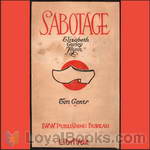 Sabotage
Sabotage
Elizabeth Gurley Flynn (1890-1964) was a leading American socialist and feminist. Her book “Sabotage, the conscious withdrawal of the workers’ industrial efficiency” was written to explain the utility and legality of sabotage. | |
By: Emily Burbank (?-?) | |
|---|---|
 Woman as Decoration
Woman as Decoration
A guide for women to complement their dress to their surroundings, be it in their own home, on outings or on stage. Please note that there is a separate chapter with the captions of the fashion plates which can be found in the online text. | |
By: Bahá'u'lláh | |
|---|---|
 The Arabic Hidden Words
The Arabic Hidden Words
Kalimát-i-Maknúnih or The Hidden Words is a book written in Baghdad around 1857 by Bahá'u'lláh, the founder of the Bahá'í Faith. This work is written partly in Arabic and partly in Persian. The Hidden Words is written in the form of a collection of short utterances, 71 in Arabic and 82 in Persian, in which Bahá'u'lláh claims to have taken the basic essence of certain spiritual truths and written them in brief form. Bahá'ís are advised by `Abdu'l-Bahá, the son of Bahá'u'lláh to read them every day and every night and to implement its latent wisdom into their daily lives... | |
By: Bob Brown (1886-1959) | |
|---|---|
 The Complete Book of Cheese
The Complete Book of Cheese
This recording was released to coincide with National Cheese Lovers’ Day 2010 in the United States. Robert Carlton Brown (1886 – 1959), after living thirty years in as many foreign lands and enjoying countless national cheeses at the source, returned to New York and summed them all up in this book. After majoring in beer and free lunch from Milwaukee to Munich, Bob celebrated the end of Prohibition with a book called Let There Be Beer! and then decided to write another about Beer’s best friend, Cheese... | |